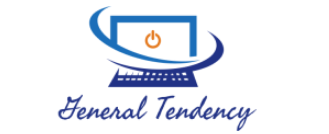In today’s fast-paced digital world, it has become increasingly important for businesses to harness the power of digital marketing in order to thrive in the online realm. With so many companies vying for attention and customers, standing out from the competition can be a daunting task. This is where the art of Search Engine Optimization (SEO) truly comes into play. By mastering SEO techniques, businesses can unlock the potential to reach a wider audience, boost their online visibility, and ultimately achieve online success.
Digital marketing encompasses a broad range of strategies aimed at promoting products or services through various online channels. From social media advertising to content marketing, the opportunities in the digital landscape are endless. Nonetheless, effective marketing strategies must be tailored to the modern consumer’s habits and preferences. And with the majority of online journeys starting with a search engine query, it’s hard to ignore the significance of SEO. By optimizing websites, content, and online presence, businesses can ensure maximum visibility, increased organic traffic, and enhanced user experience.
In this article, we will delve into the world of digital marketing and explore the intricacies of SEO techniques. From understanding the basics to implementing advanced strategies, we will uncover the key to unlocking online success. So fasten your seatbelts and get ready to embark on a journey that will empower you to unleash the full potential of digital marketing through mastering the art of SEO. Let’s dive in and discover the secrets that will set you apart in the digital landscape.
Understanding SEO Fundamentals
To excel in the world of digital marketing, mastering Search Engine Optimization (SEO) is crucial. SEO is the practice of optimizing your website and its content to rank higher on search engine result pages. By strategically implementing SEO techniques, you can drive organic traffic to your website and enhance your online presence.
One of the fundamental aspects of SEO is keyword research. Keywords are the words or phrases that users enter into search engines when looking for information. By identifying the relevant keywords for your business, you can optimize your website’s content to align with users’ search intent. This involves integrating keywords naturally into your website’s headings, titles, meta descriptions, and body text to increase visibility.
Another vital element of SEO is on-page optimization. On-page optimization refers to the process of optimizing individual web pages to improve their search rankings and organic traffic. This includes optimizing the website’s structure, ensuring fast page loading speed, and enhancing user experience through intuitive navigation and mobile responsiveness. It also involves optimizing meta tags, image alt tags, and header tags to provide search engines with valuable information about your content.
Off-page optimization, the third fundamental aspect of SEO, involves activities that are performed outside of your website to improve its search engine rankings. This includes building high-quality backlinks from reputable websites, social media promotion, and online reputation management. Off-page optimization signals to search engines that your website is trustworthy and valuable, thus boosting its authority and visibility.
Understanding these SEO fundamentals is essential to achieve online success in the ever-evolving digital marketing landscape. By investing time and resources into mastering SEO techniques, you can optimize your website’s visibility, increase organic traffic, and maximize your online reach. Stay tuned for the upcoming sections in this article, where we will explore advanced SEO strategies and best practices to unleash the power of digital marketing.
Optimizing Website Content
When it comes to digital marketing and SEO, optimizing your website content is crucial for online success. By optimizing your content, you can attract more organic traffic, improve your search engine rankings, and ultimately drive more conversions. Here are some key strategies to help you master the art of optimizing website content.
-
Research and Incorporate Relevant Keywords
Keywords are the foundation of SEO. Start by conducting thorough keyword research to identify the terms and phrases that your target audience is searching for. Then, strategically incorporate these keywords into your website content. Place them naturally in your page titles, headings, meta descriptions, and throughout the body of your content. However, remember to avoid keyword stuffing, as it can negatively impact your search engine rankings. -
Create High-Quality, Engaging Content
When optimizing your website content, focus on creating high-quality and engaging content that provides value to your audience. Craft informative blog posts, articles, and landing pages that are well-researched and comprehensive. Ensure that your content is easy to read and understand by using clear headings, bullet points, and subheadings. Engaging content not only boosts your search engine rankings but also encourages visitors to stay on your website longer, reducing bounce rates. -
Optimize Meta Tags and Descriptions
Ensure that every page on your website has unique meta tags and descriptions. These tags provide search engines with crucial information about your content. Craft compelling meta tags and descriptions that accurately describe the page’s content and include relevant keywords. Keep them concise yet descriptive, as these snippets often act as your website’s first impression in search engine results.
By optimizing your website content, you can significantly boost your digital marketing efforts and improve your website’s visibility in search engine results. Remember to regularly update and refresh your content to ensure it remains relevant and valuable to your audience. With these strategies in place, you’ll be well on your way to online success.
Leveraging SEO Tools and Strategies
In order to achieve online success in the realm of digital marketing, mastering Search Engine Optimization (SEO) is essential. SEO tools and strategies play a crucial role in optimizing websites and content to improve visibility and reach. By leveraging these tools effectively, businesses can enhance their online presence and attract more organic traffic. Here are some key SEO tools and strategies that can take your digital marketing efforts to the next level:
-
Keyword Research: Conducting thorough keyword research is the foundation of any successful SEO campaign. By using tools like Google Keyword Planner, SEMrush, or Moz’s Keyword Explorer, you can identify relevant keywords and search terms that your target audience is using. This will help you optimize your content and website structure to align with the keywords that have high search volumes and less competition.
-
On-page Optimization: Once you have identified the right keywords, it’s important to incorporate them strategically throughout your website’s pages. This includes optimizing meta tags, headings, URLs, and image alt tags with relevant keywords. Using SEO plugins like Yoast SEO for WordPress can simplify the process and provide valuable suggestions for on-page optimization.

Link Building: Building high-quality backlinks from reputable websites is a powerful SEO strategy that can greatly improve your website’s search engine rankings. Outreach to industry influencers, guest blogging, and participating in online communities are effective ways to acquire these valuable backlinks. Tools like Ahrefs or Majestic can help you analyze your website’s backlink profile and monitor the success of your link-building efforts.
By utilizing these SEO tools and implementing the right strategies, you can ensure that your digital marketing campaigns are effectively optimized for search engines. Remember to regularly analyze and adapt your SEO approach based on the latest trends and algorithm updates to stay ahead in the competitive online landscape.





